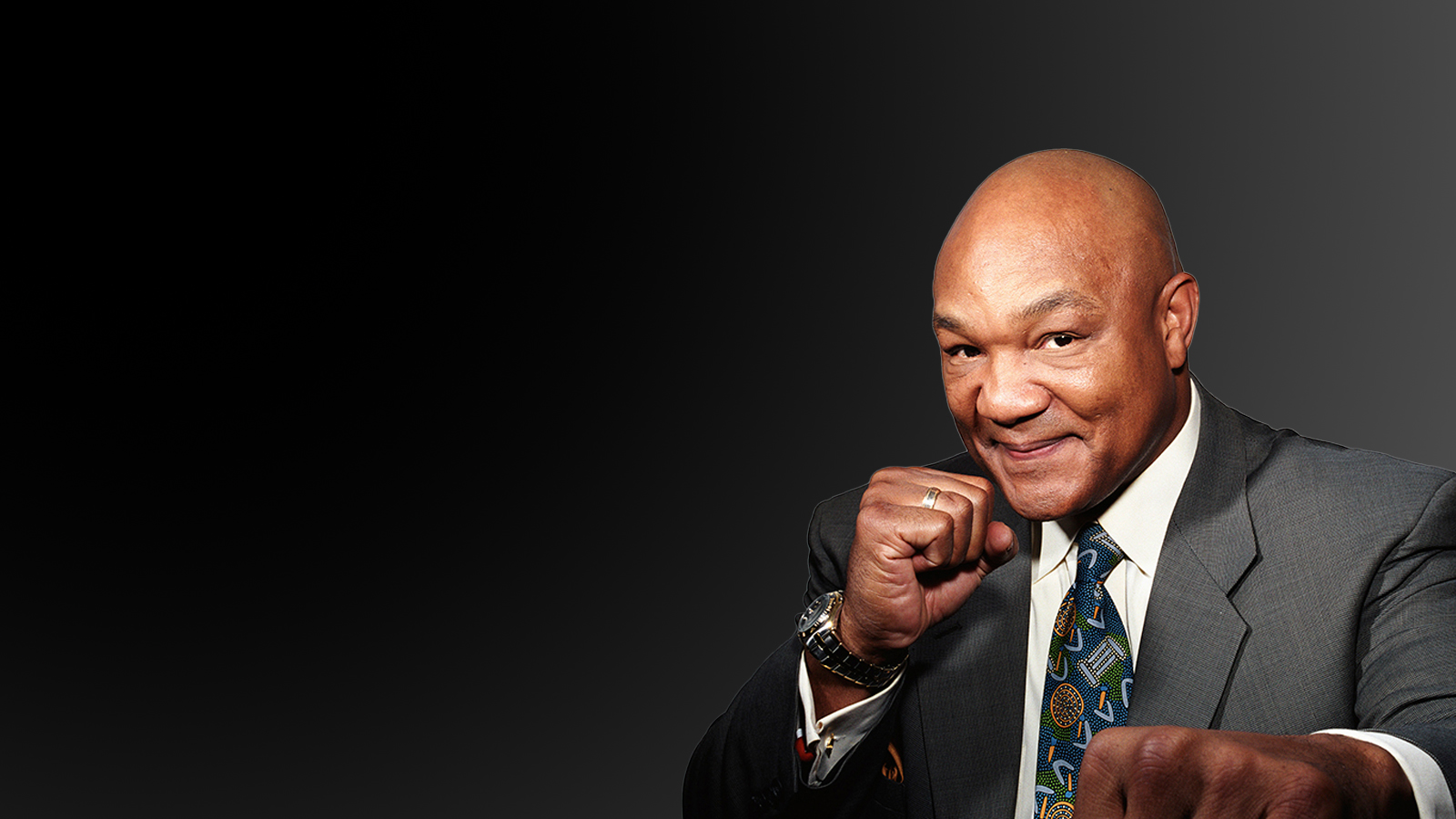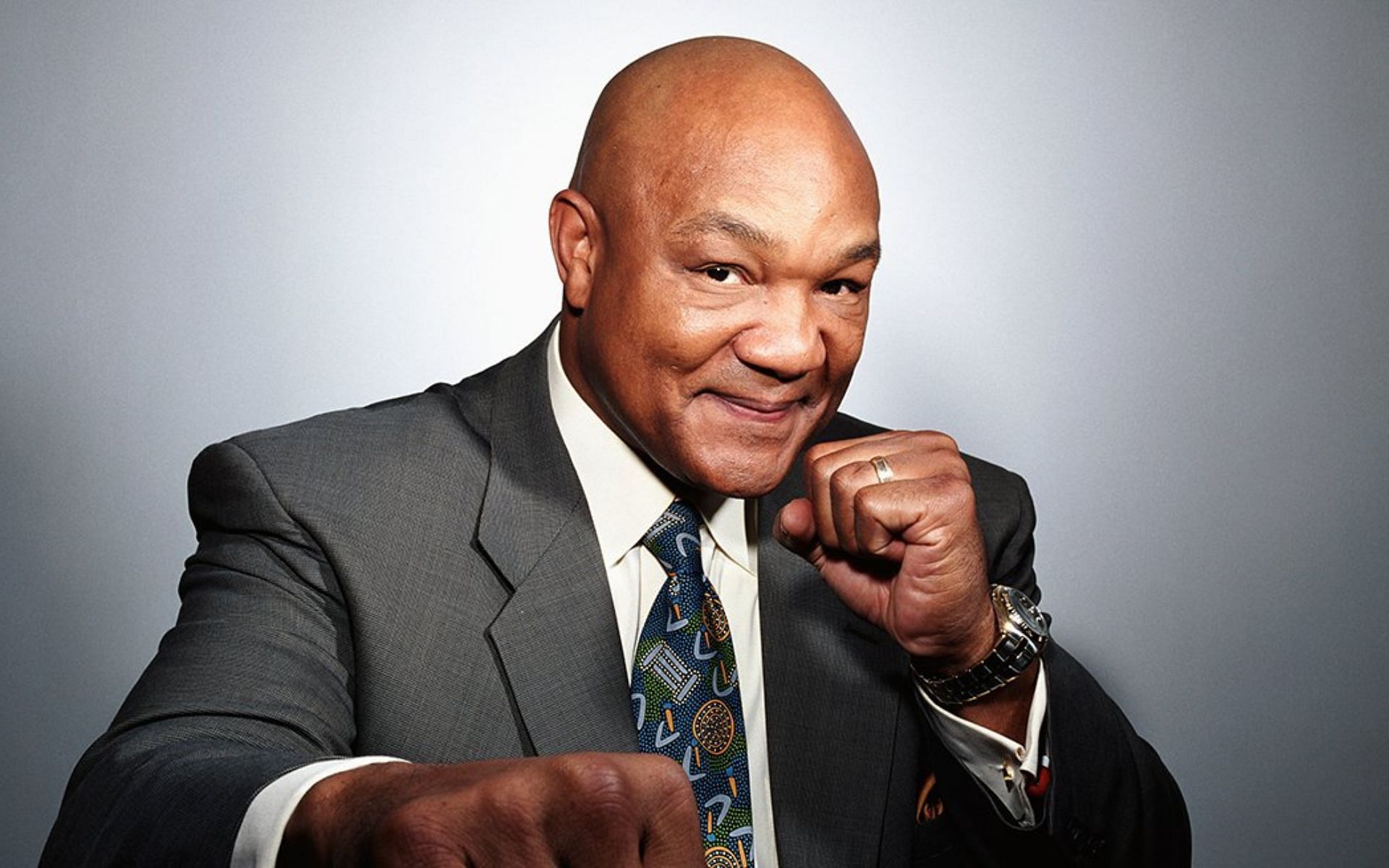
George Foreman, the two-time world heavyweight boxing champion whose impact extended far beyond the ring, has died at the age of 76. According to a statement on his Instagram account, Foreman passed away peacefully, surrounded by loved ones, after living an extraordinary life. His family described him as a devout preacher, devoted husband, loving father, and proud grand and great grandfather. They said their hearts are broken.
Foreman was remembered as a man of unwavering faith, humility, and purpose. He was a humanitarian and Olympian, deeply respected in and out of the sport. The family statement called him a disciplined man of conviction who tirelessly fought to protect his legacy for his family. Known in the ring as “Big George,” Foreman forged one of the most remarkable and enduring careers in sports history.

Early Life and Rise to Boxing Fame
Born George Edward Foreman on January 10, 1949, in Marshall, Texas, he grew up in Houston’s tough Fifth Ward. Raised by a single mother alongside six siblings, Foreman’s early years were marked by hardship. He dropped out of school at 15 and became involved in petty crime, including street robberies. His life took a decisive turn when, at 16, he left Texas and found boxing through the Job Corps, a U.S. government program.
A quick learner with immense natural power, Foreman rapidly rose through the amateur ranks. In his 25th amateur fight, he earned a spot on the U.S. Olympic team. At 19, he won the heavyweight gold medal at the 1968 Mexico City Olympics, stopping Soviet fighter Jonas Čepulis in the second round. Celebrating in the ring, he waved a small American flag—a powerful symbol during a time of political turbulence in the U.S.

Becoming Heavyweight Champion and Iconic Fights
Turning professional in 1969, Foreman quickly became a destructive force in the heavyweight division, winning 37 consecutive bouts by knockout. His dominant streak led to a 1973 title fight against the undefeated Joe Frazier in Kingston, Jamaica. Considered the underdog, Foreman stunned the boxing world by knocking Frazier down six times in two rounds before the referee stopped the fight. Commentator Howard Cosell’s iconic call, “Down goes Frazier! Down goes Frazier!” became one of boxing’s most famous phrases.
Foreman defended his title twice, including a victory over Ken Norton. His reign culminated in the legendary 1974 fight against Muhammad Ali, known as ‘The Rumble in the Jungle,’ held in Kinshasa, Zaire (now the Democratic Republic of the Congo). Foreman, 25, was widely expected to overpower Ali, then 32 and seeking to reclaim the crown. Foreman even told the BBC he believed the fight would be easy, saying, “I said I was going to go out there and kill him… I’ll just beat him down to the ground.”
Ali’s strategy, later called the ‘rope-a-dope,’ involved absorbing Foreman’s early attack by leaning against the ropes, frustrating the younger champion and wearing him out. In the eighth round, Ali launched his counterattack, knocking Foreman down for the first time in his career and winning the fight. The defeat deeply affected Foreman, who later reflected it led him to question everything he believed about himself. However, he eventually saw the loss as the best thing that happened to him, as it helped him find his voice through preaching.

Retirement, Religious Transformation, and Ministry
Foreman fought five more times after the Ali fight, including a second knockout victory over Frazier. Following a second professional loss in 1977 to Jimmy Young, Foreman experienced a near-death religious moment in his dressing room, prompting his retirement at 28. He became a born-again Christian and was ordained as a minister, founding the Church of the Lord Jesus Christ in Texas. His preaching began informally on street corners and with friends, eventually growing into a large congregation.
For about a decade, Foreman stayed away from boxing, focusing on ministry and facing financial struggles.

Comeback and Historic Second Championship
In 1987, at 38 years old, Foreman surprised the sporting world by returning to boxing, motivated to raise money for a youth center he had founded. Many expected a sideshow given his age and physique, but Foreman quickly proved his power with 24 straight wins, 23 by knockout.
In 1991, he challenged undisputed champion Evander Holyfield in a competitive title fight but lost on points. He also lost a title fight to Tommy Morrison in 1993. Nevertheless, Foreman’s dream to reclaim the heavyweight belt persisted.
In November 1994, at 45, Foreman faced reigning WBA and IBF champion Michael Moorer in Las Vegas. Though behind on the scorecards and outboxed for much of the fight, Foreman delivered a stunning short right hand in the 10th round that knocked Moorer out. Wearing the same red trunks from his Ali fight two decades earlier, Foreman kneeled in prayer as the crowd erupted. This victory made him the oldest heavyweight champion in history and set a record for the longest gap between title reigns—20 years.
Foreman defended the title three times before losing a controversial decision to Shannon Briggs in 1997. He retired for good at 48 with a professional record of 76 wins (68 by knockout) and just five losses.

Business Success and Public Persona
Outside the ring, Foreman transformed into a jovial, television-friendly personality. This new image helped him succeed in business, most notably as the face of the George Foreman Grill. Designed by Michael Boehm and Robert Johnson, the grill launched in 1994, the same year as his historic comeback victory.
Thanks to Foreman’s enthusiastic promotion, the “Lean Mean Grilling Machine” became a household staple, selling over 100 million units worldwide. Though exact earnings are unclear, Foreman reportedly received $138 million in 1999 for the rights to use his name, along with lucrative profit shares. The grill made him wealthier than his boxing career ever did.
He also worked as a boxing analyst for HBO, appeared briefly in a 1990s sitcom called George, and in 2022 participated in the reality singing competition The Masked Singer. In 2023, a biographical film titled Big George Foreman was released.

Personal Life and Enduring Legacy
Foreman was married five times, most recently to Mary Joan Martelly in 1985. He fathered twelve children, including five sons—all named George Edward Foreman. He explained this naming choice was to ensure they always shared something in common. Foreman said, “If one of us goes up, then we all go up together. And if one goes down, we all go down together.” He also had seven daughters, among them Natalia, Leola, Michi, Georgetta, Isabella, and Courtney.
His daughter Freeda Foreman also boxed professionally, compiling a 5-1 record before retiring in 2001. She sadly passed away in 2019 at age 42.
Tributes poured in from the sports world following his death. Former heavyweight champion Mike Tyson called Foreman’s contributions unforgettable. The Ring magazine hailed him as one of the greatest heavyweights ever and an icon of the sport. Former President Donald Trump described Foreman as a great fighter with the heaviest punch in boxing history, second only to Ali. British boxer David Haye praised Foreman’s perseverance and thunderous punches, calling him a magnificent human being inside and outside the ring.
Other notable figures like Chris Eubank Jr, Magic Johnson, and boxing promoter Bob Arum shared their admiration and condolences. Veteran broadcaster Jim Lampley reflected on Foreman’s evolution from a fierce young fighter to a successful businessman with a “big, ever-present giant grin.”
WBC President Mauricio Sulaiman called Foreman a legendary champion, life-changing preacher, and cherished friend, wishing that “Big George rest in peace.”
George Foreman leaves a towering legacy in sports, business, and popular culture. From feared knockout artist to preacher, from champion to entrepreneur, his journey captivated millions. His influence will endure as a true heavyweight in every sense.



